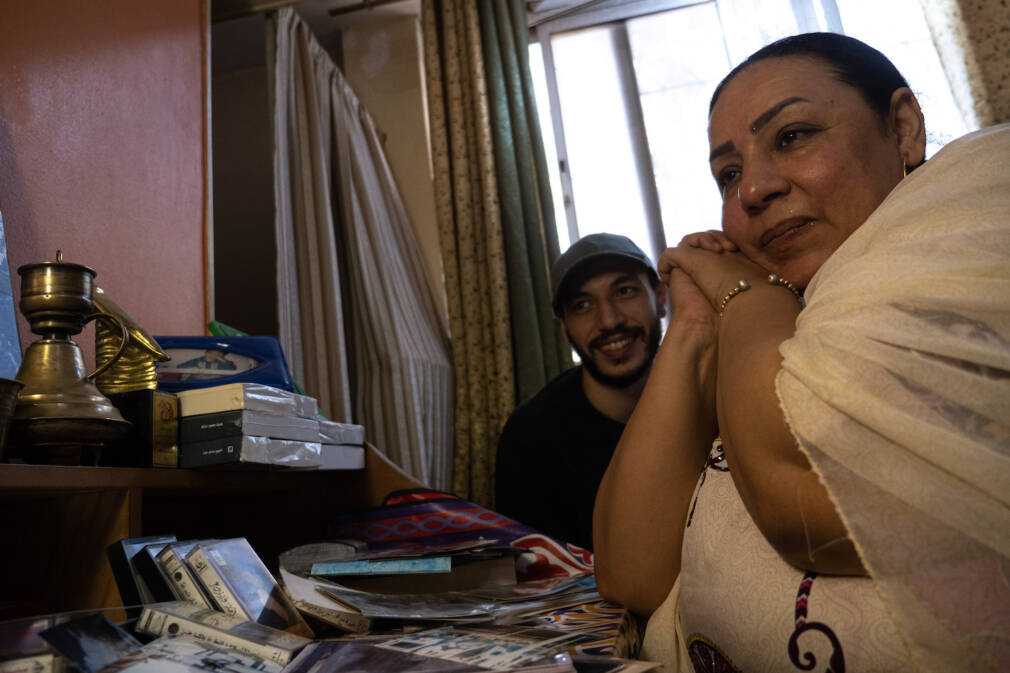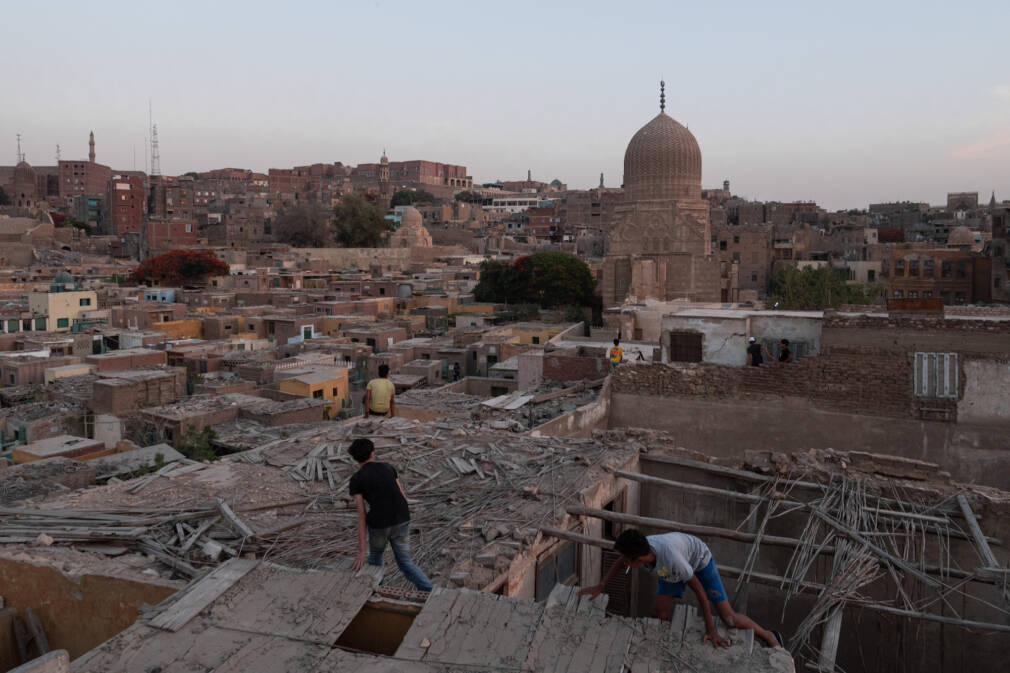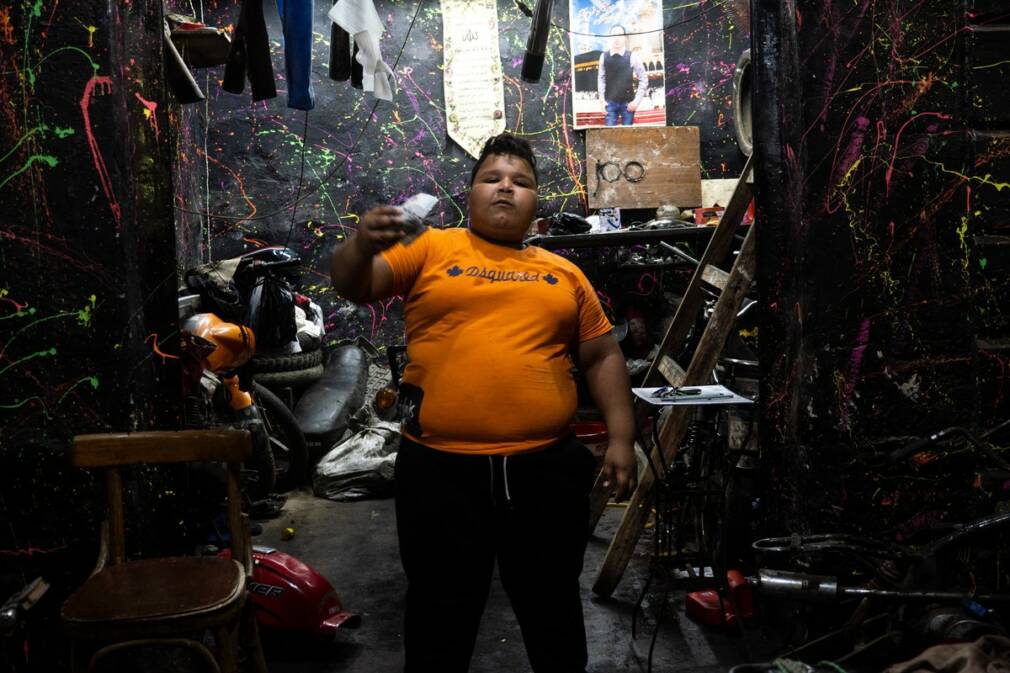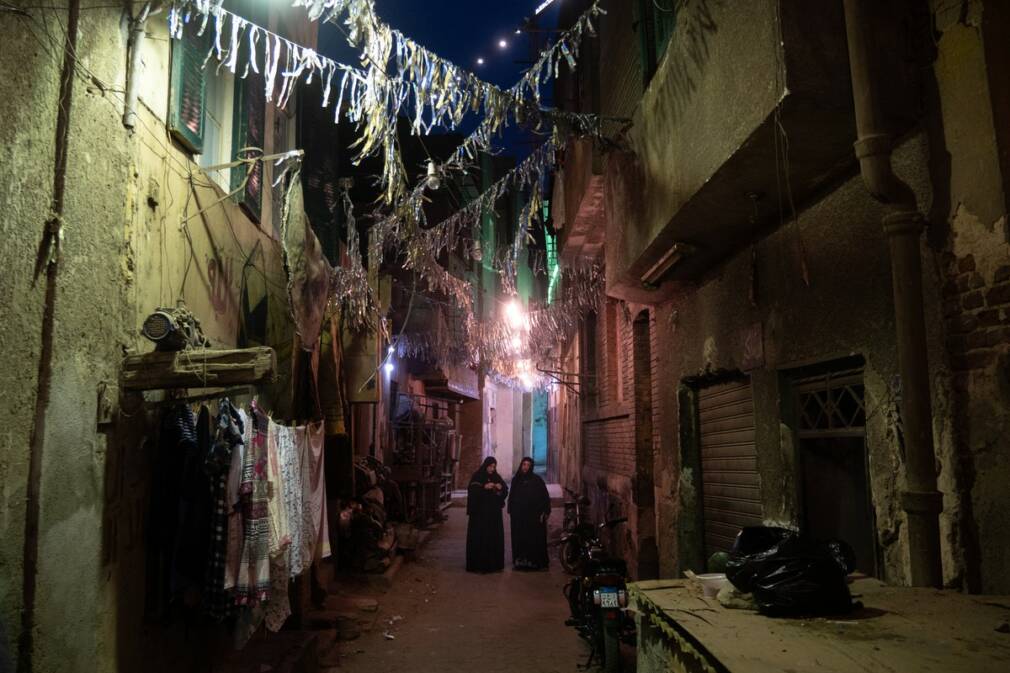PAM presents: Molotof, plugged-in to Cairo’s flame
In Cairo, between post-revolutionary disillusionment and the unbridled creativity of its music scene, young electronic producer Molotof tells his story in a film directed by Arthur Larie and Bastien Massa. A must-see PAM documentary!
“I was already listening to Molotof before I met him,” confides Arthur Larie, one of the two directors of this documentary film and the first episode of a collection of portraits produced by PAM and titled “Off the Map“. “I loved his rap music productions, which were much more complex than the usual Mahraganat music, with his more personal vibe, acid and electronic. We had wanted to meet him for a long time, in order to showcase his music here in France. We tracked him down in the studio he had just built in Cairo. From there, things went very quickly. And, above all, naturally.”
Cairo, a breeding ground for sounds
“Molotof’s music is massive in Egypt and his videos have been seen millions of times on Youtube,” explains Bastien Massa. “But he’s a regular guy, and accessible.” To understand the music the person who signed beats for the trappers Marwan Pablo or Wegz before evolving into electro music, one has to soak up the sounds of Cairo, a global city full of deafening sounds where blaring car horns clash with the infra-bass of the faulty motors of diesel trucks. As the young producer himself says at the beginning of the documentary : “When I started to understand the relationship between music and society, I started to see everything differently.”

“It’s simple” adds Arthur. “In Cairo, if you stand on a busy street and listen closely, only a few things are needed to be added to create a Mahraganat.” A Mahraganat (literally “festival” in Arabic), is a deluge of frenetic beats and auto-tuned harangues, which has become the soundtrack of an entire generation, the same one that demonstrated at Place Tahrir and other places in the 2010s. “Mahraganat is an energy, an impetus, forceful lyrics, relentlessly jerky rhythms,” explains Bastien. “Cairo is a city well-known for its very, very high decibels“, emphasizes Arthur. “You can fall into a trance on a street corner, in a market, hypnotized by the rhythms and the traffic jams, the street sellers and their loudspeakers. The city center is perpetually blaring and thundering. This bedlam can literally entrance you, trust me. It’s crazy, believe me, it’s happened to us.”
Mahraganat, or the soundtrack to the streets of Cairo? Present in the capital’s popular neighborhoods before the revolution, this music was the background to the social uprising. Even if Molotof literally grew up to the sounds of this highly flammable music, “Molotof is a melting pot of various influences,” explain the two directors. “He was born in an industrial and polluted suburb of Cairo. He is a huge soccer fan and an ‘ultra’. But at the same time he comes from a spiritual, literary background. His grandfather was a writer and his mother is also a writer (as seen in a touching sequence of the film). This gives an idea of the setting and the surrounding environment. But in order to really understand Molotof and his music, there is a third crucial aspect, which is the social context.”

After the Spring, an Egyptian winter
We’ll briefly summarize the political events that have marked the country over the past ten years: in 2011, the Egyptian revolution provoked the fall of Hosni Mubarak. In 2012, Mohamed Morsi, a member of the Muslim Brotherhood was – democratically – elected president. He was then overthrown by a military coup led by general Abdel Fattah al-Sissi. Between massive speedy trails and numerous death sentences, Al-Sissi has run the country with an iron fist ever since. Community activists, alternative politics, journalists… The slightest attempts to oppose the regime are violently put down with complete impunity. Ever since his seizure of power, non-governmental organizations the world over, including the UN, continue to denounce these human rights violations perpetuated by the Egyptian authorities. It is now a simple fact that the Egyptian people did not triumph at Place Tahrir. The French philosopher Alain Badiou has made this conclusion about the the experience of Egypt’s revolution : “A political victory cannot just be defined by the defeat of the enemy. It must have a specific content.“* In Egypt, one dictator simply replaced another. The true winner? The dictatorial regime, which remained in power. And on the autocratical level, nothing has changed at all. On the contrary, keep in mind that Al-Sissi was the former director of military intelligence under deposed president Mubara.
Molotof grew up during these historically depressing times. This deeply effected him psychologically, confirms Bastien. “The revolution had a very strong impact on him. The period that followed put him in a depressive state. During the uprising he was constantly out in the streets, in discussions with people, living unforgettable moments of freedom, demonstrations, celebrations,” adds Arthur. “And suddenly it all came to an end. To meet with people in groups became dangerous, the streets were violent. People were forced to remain cloistered at home… And the hopes of a better world disappeared. As the country collapsed, the country’s youth became profoundly dejected. Molotof’s depression is explained through his testimony, and it was courageous for him to do so, but it must be said that most Egypians also suffer, in silence, because of this morose atmosphere.”

Despite his emotional state, Molotof has never stopped working in his studio. The musician has now stopped working on the rap productions of his early days, concentrating on technoid electronic productions whose abstractions, less loquacious, are more in harmony with his current state of mind and with the numerous influences he has ingested, along with the direction his life is currently taking. “Egypt’s youth, as well as an entire creative generation, participated in a social uprising,” states Arthur Larie. Even if the political situation was not transformed, it was at least experienced. This can be sensed, and felt, in the discussions between Molotof and his friends that are seen in the film.
Can anyone say that a revolution is over for good? For Bastien Massa, “It is too early to bury the uprising. No one knows what has really changed and what undercurrent is now taking place in the country. Things have shifted. Something new could emerge.” And perhaps Molotof’s music will provide the soundtrack for it. Take a look for yourself on PAM’s Youtube channel.
*Listen and watch “Comment vivre et penser en un temps d’absolue désorientation ?” (How to think and live in a period of complete disorientation? A seminar headed by Alain Badiou in the municipality of Aubervilliers (session on Monday February 8, 2022).
by Théophile Pillaut, April 7th 2022


